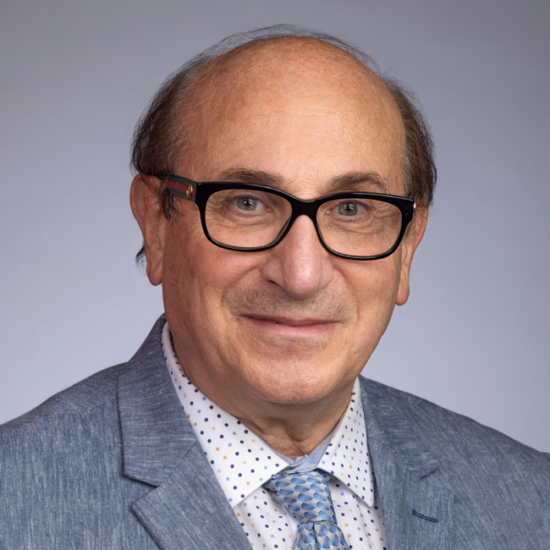International Programs
Since its inception in 1959, the Department of Medical Education has played a major role internationally.
DME has been a World Health Organization Collaborating Center since 1979, with a long history of engagement in international projects affecting global health policy. DME has collaborated with and accepted international fellows from 25 countries. In addition, our graduate degree program prepares education leaders for the world stage. Finally, through professional development, consultation, and collaboration, DME develops future leaders and new programs in health professions education (HPE).
Overview Heading link
Program mission and goals
Our mission is to provide better health care worldwide through effective and responsive international partnerships in the health professions. The four major program goals are:
- To facilitate the use of methodologies and approaches based on sound educational theories and best practices
- To collaboratively construct and disseminate new HPE approaches, methodologies, and scholarship
- To establish and enhance international networks of HPE leaders and practitioners
- To facilitate connections among basic science, clinical, and health care delivery programs at UI Health to fulfill our partners’ educational goals
Who is this program for?
DME works in collaboration with a broad cross-section of individuals involved in HPE internationally, including faculty, staff, postdoctoral scholars, fellows, students, and graduates as well as academic leaders, health care institution leaders, professional societies, government officials, nongovernmental organizations, and donors.
Programmatic means to achieve our mission and goals include educational programs, such as fellowships, certificate programs and workshops, and an onsite graduate degree program—as well as consultation and institutional resources. Our programs draw on the strengths of multidisciplinary faculty and include expertise in
- Curriculum
- Instruction
- Assessment
- Evaluation
- Health humanities and ethics
- Clinical decision making
- Research methodology
- Leadership and organization
Program Components and Applications Heading link
DME’s International Programs has three components: short-term medical education fellowships, MHPE Abroad, and international partnerships.
Program details
Timeline and structure
This 1- to 6-month bespoke medical education program is designed for health professionals who have specific HPE challenges or issues to explore. Those who are accepted for the program are expected to arrive with a set of project goals that can usually be achieved within three months or less.
On occasion, by special request only, fellowship positions have been extended to 1 year.
Topics of study
A concentrated program of individualized research and consultation is arranged for each participant. Past fellows have explored topics including:
- Clinical decision-making
- Competency assessment
- Curriculum planning
- Educational research
- Instructional methods
- Leadership and organization
- Medical humanities
- Medical informatics
- Program evaluation
- Quality management and improvement
- Statistical data analysis
- Test construction.
Advisors
Each fellowship project is supervised by one or more DME faculty who, as an advisor(s) offers his or her educational expertise and guidance.
Auditing MHPE courses
In addition, short-term fellows may attend or audit most courses and electives routinely offered by faculty for the Master of Health Professions Education (MHPE) degree. Short-term fellows are encouraged to conduct studies using data from their home institutions.
Selection criteria
Four selection criteria exist for the Short-Term Fellowship Program:
- Participation in the program is restricted to health professionals who have, or expect to have, major educational responsibilities (e.g., administration, evaluation, instruction) at an educational institution, professional association, or related setting.
- Candidates must clearly describe the nature and scope of the educational problem that will form the basis for their Fellowship experience.
- Candidates are expected to have career goals that emphasize some aspect of health professions education.
- Candidates are expected to present evidence of proficiency in English.
Admission to the Short-Term Fellowship Program is possible throughout the calendar year. Candidates will be notified about the admission decision within one month of the date of receipt of their application materials. The fee for a Short Term Fellowship is $2500 per month.
Program details
International Programs also offers the graduate degree program, the MHPE degree, onsite at institutions worldwide.
Successful programs built around a modular format were completed at:
- Suez Canal University (Ismailia, Egypt) for the faculty of medicine (1988-89)
- Beijing Medical University for physician leaders from throughout the People’s Republic of China (1991-92)
- At multiple sites for HPE leaders throughout Brazil (1998-2000).
In Saudi Arabia, Department of Medical Education offered its graduate degree program in partnership with King Saud University (Jeddah) twice (2014, 2019) and with Taif University (2015-18).
Planning continues with other international institutions interested in offering the DME graduate degree program at their locations. Please contact Ara Tekian for additional information.
Program details
As a result of these programmatic initiatives, the Department of Medical Education has been honored to receive invitations to establish long-term, formal collaborations and partnerships with students’, fellows’, and graduates’ home institutions. Collegial exchange can assist in forming long-term relationships characterized by mutual multidimensional planning, exchange, and benefit with a forward-looking purpose.
Examples of educational initiatives that may benefit from international partnership include:
- Curriculum development or revision
- Instructional delivery consultation
- Development of assessment tools and programs
- Program evaluation
- Skills development for program directors
- Development of accreditation and licensure standards
- Research collaboration
- Faculty development
- Development of international or multicultural case studies for educational use
- Starting a new medical education unit
DME warmly invites interested parties to let us help you explore programmatic change, from conceptual definition and framing through change implementation and evaluation. Our multidisciplinary faculty look forward to an exchange of expertise with international HPE leaders to: identify challenges and their contributing factors; explore potential solutions by reviewing and critiquing published evidence; develop multiple site-specific solutions; and explore factors involved in the change process as associated with chosen solutions, including implementation barriers and champions as well as outcomes evaluation.
Please contact Ara Tekian for additional information.
Reach out
For MHPE Abroad (international onsite) or to consider establishing a new international partnership, please contact Ara Tekian.
